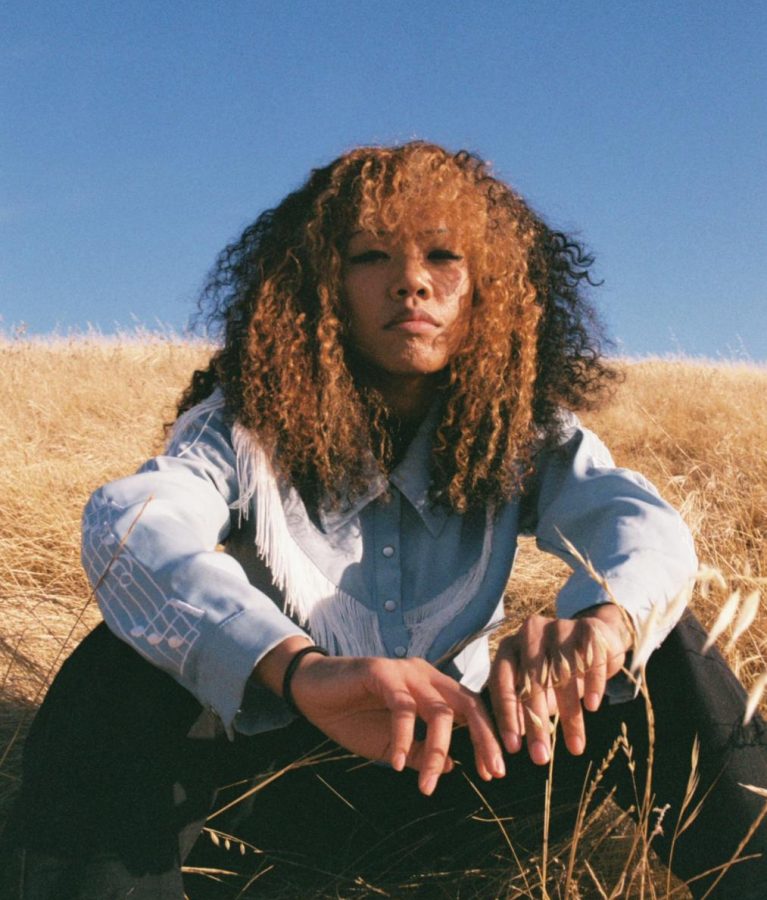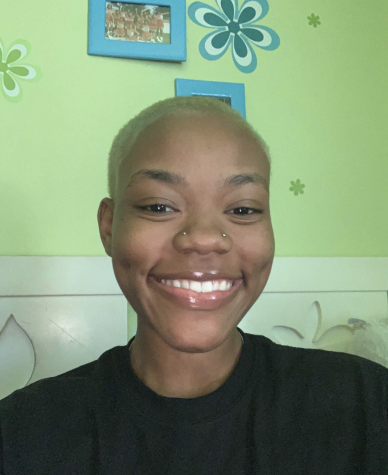Female artists in the Bay Area show resilience through music
At one point in time, which now seems like forever ago, the art scene in the Bay felt like one big family. There were parties nearly every week. With the pandemic, creatives that once thrived off coming together in the name of their art can no longer do so. There are no more events to link up with friends and create.
“People from the Bay tend to be creative in general. As a result, they have a great appreciation for artistry, and creativity and have pride in supporting locally,” singer/songwriter Ritty Bo said. “You don’t see that very often anywhere else.”
Now people can’t even see it here. People miss the experience of standing in the dark lighting, loud music and hundreds of bodies that once filled these venues. They gathered in the name of art and creativity once before. Now they are virtually brought together by their love of live music, which has been key for many young artists here.
“I feel like it’s a blessing and a curse,” Oakland artist, Siri Bo said. “I do feel like you can get stuck very easily in this place if you let it suck all your energy up. Aside from that, I think that the Bay Area music scene is pretty lit. You could meet a whole bunch of people, there’s a whole bunch of people with different sounds and talents, which I think is dope.”
For Siri Bo, music initially became a way for her to get out of the house as an outlet away from school. She described the scene as interesting, fast and ever changing, but she explained that it is a foundation for music.
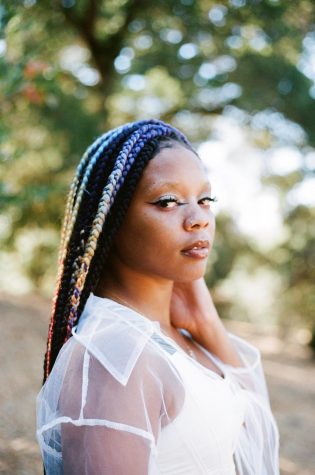
Siri Bo said she thinks it takes a lot of resilience, effort and appreciation for oneself in order to make it here, or anywhere. Resilience in her career looks like being true to herself and not really worrying about what people may say.
“I feel like it takes more effort to be yourself than it does to be other people,” Siri Bo said.
For up and coming artists who do not have any connections or relationships in the industry, it might take more to succeed in the music scene. A big part of the music and art scene in the Bay Area were the parties that were happening often a few years ago. The atmosphere has since changed after people got older, and of course during the current pandemic. These parties were the entry point for a lot of artists such as singer/songwriter Ritty Bo.
The live parties gave artists an opportunity to network and connect with a person face-to-face. Things will not be the same way that they were four years ago, or even two years ago. People are connecting in different ways. The internet has been key in connecting people to each other and sharing art. Virtual concerts such as Doozyfest provide spaces to gather online like they could at those parties.
“I feel like a virtual festival was the best way to adapt and keep the music alive,” said Thomas Jordan, Vallejo artist and producer.
Networking and socializing at these parties were the main ways that a lot of artists were able to create relationships that helped them progress their careers. Ritty Bo said the scene today lacks some freshness—which is a given during the pandemic—but even in recent years, the novelty of the scene has gone.

“Back when I was starting out there’d be music shows or art shows like every weekend,” Ritty Bo said. “You just kind of go, show your face, meet new people, ask them what they’re about you kind of just make friends. Social media is a really big thing and you have to let people know what you’re all about. If you want to be an artist you can’t hide that.”
This is not the fact for everyone. A lot of people move from the Bay Area to Los Angeles in hopes that they will be able to get more work opportunities and gain more exposure for their art. Others have faith that staying home will be more beneficial. East Bay singer Kezia now lives in Los Angeles and is majoring in music industry studies at Cal Poly Pomona.
The move Kezia made to Los Angeles has helped her a lot in her career. The move for school led her to meet a lot of people, mostly from the Bay Area, who have been able to help her with her music. In places like Los Angeles, the music scene is more of an industry. There is more effort put into it and artists are able to have more than just parties to showcase their work.
“I would say that it’s helped me so much, honestly. A lot of people, friends and situations I was in I wouldn’t have been in if I was primarily living in the Bay,” Kezia said.
Many artists make the move from the Bay to L.A. as they grow bigger in their careers. Artists can get their sound and their name out in L.A.’s music industry. With that move, many artists find that performing is nothing like being in the Bay. Both Ritty Bo and Kezia say that there is nothing like performing your music at home and taking pride in where you are from.
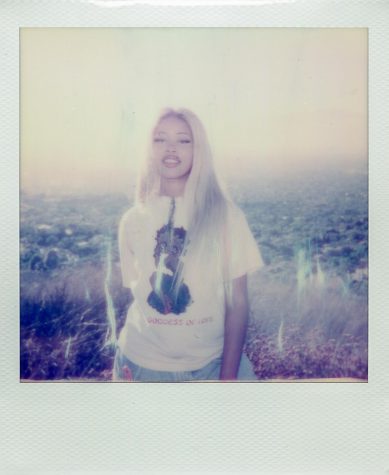
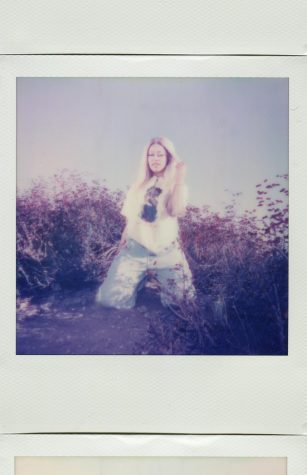
“There is a sense of pride of wanting to put on for your city, and wanting to put on for everybody around you,” Ritty Bo said. “Performing out in the Bay is one of the biggest highs you could ever get. Performing for your people, the energy is crazy.”
The artists feed off of the energy from the crowd. Oftentimes performers say that the crowds in the Bay are the most genuine that they have experienced.
“One thing about Bay Area crowds that’s different from other crowds, they can smell a fake from a mile away,” Kezia said. “So if you are not into your own shit and you’re not rehearsing, and you’re not really about it. Bay Area crowds can smell it out.”
In the music industry, women only make up about 22% of musical artists, almost 13% of songwriters and close to 3% of music producers, according to the Sheisthemusic Instagram page. Bringing those statistics into a smaller pool of the Bay music scene, women here make up even less of the artists.
Ritty Bo, Kezia and Siri Bo all recognize the music scene in the Bay as a male dominated space. Kezia explained that she wishes that there were more women behind the scenes as producers and studio engineers. Kezia talked about moments in studio sessions where she has experienced uncomfortable situations as a young woman.
Sometimes there are people who do not take what they want to do seriously as artists. Ritty Bo tends to avoid going places alone when she is recording to have a sense of security when she is going into a new place.
“Any girl in the industry knows producers could be weird,” Ritty Bo said.
Though it is a boys club, there is this sense of community that is set in place in the Bay that does not feel the same anywhere else. It can be a bit hard as a woman in the music industry to find people who are genuine with their want to collaborate.
“I think young impressionable girls, trying to make it in the music industry, it leaves a lot of room for weird shit to happen,” Kezia said.
Many people who meet through this scene have been fortunate enough to grow strong and genuine bonds. Kezia said that it’s nice to have a community of people making music in the same place. These bonds can grow into real working partnerships and collaborations, it is always a good thing to have a group of people to work with who are genuine and sincere.
Fortunately, both Kezia and Ritty Bo have had the opportunity to work and befriend people that they feel safe around such as Thomas Jordan, a producer and artist in Vallejo. Jordan was even a key player in the creation of Kezia’s latest single, Megan Fox, named after the early 2000s actress. Jordan collaborates in creating music with Ritty Bo and Kezia and pushes both of them to do more.
“Ritty came into the picture not long after I met Kezia,” Jordan said. “She had written and recorded Love before we met. She had already been in her bag as a writer, I just helped her nurture that a little further. Ritty Bo’s a superstar.”
Ritty Bo said that her friends and the people who support her help motivate her to create music and get out of her shell. Siri Bo finds it hard to stay motivated during COVID. She expressed that the driving points in her life are to be successful for her family and foster safe, creative spaces for people.
“I don’t even know what keeps me going these days honestly. We’re in COVID still,” Siri Bo said. “In general I think what keeps me going is wanting to be successful. So that me and my family, because they’re important to me. They’re taking care of me so I want to take care of my family also, and I want to do that by providing space and structure for other people to have their own safe spaces.”
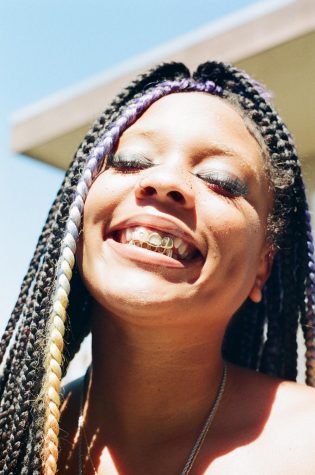
Kezia recognizes that for her a lot of her motivation comes from her ancestors, her genuine love for music and the role it has played in her life and her family.
“Music has always been one of the things that’s always been very consistent for me in my life when everything else wasn’t really consistent,” Kezia said. “It’s saved my life many, many times.”
Now social media is able to get names across the world just by the touch of our fingers. For Ritty Bo this year on her Spotify Wrapped, via Twitter, she amassed over 250,000 plays and got her music heard in 84 countries. Kezia has gotten over 100,000 plays on her recent single Megan Fox, and over 67,000 listeners on her Spotify.
It looks like the hard work that they are putting into their craft is paying off. Most of that work for these artists are the forces that motivate them in their lives. They expressed that it’s been hard to find their drive in the midst of a pandemic, but they are making it through from their art.
“Resilience has taught me to honor myself and listen to people when they tell me who they are,” Kezia said. “I got so used to sparing people that I had to stop doing that so I could be there for myself. Loving myself has been a lifelong journey and it’s taught me a lot about not only me but the world around me.”


